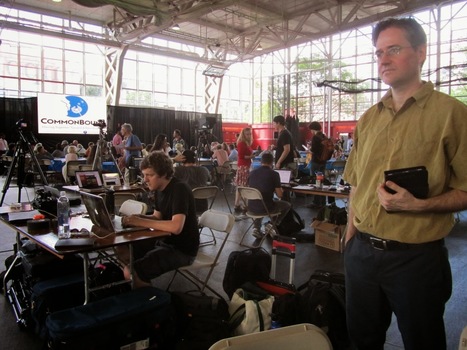Research and publish the best content.
Get Started for FREE
Sign up with Facebook Sign up with X
I don't have a Facebook or a X account
Already have an account: Login
on peer-to-peer dynamics in politics, the economy and organizations
Curated by
jean lievens
 Your new post is loading... Your new post is loading...
|

Marty Roddy's curator insight,
November 21, 2013 9:08 PM
Interesting thoughts and shows how info can be directed and pointed to specifc answers and ideas. |




















COMMONS TRANSITION ECONOMY AND BUSINESS FEATURED PODCAST P2P ECOLOGY P2P SOCIETY AND POLITICScommons tra